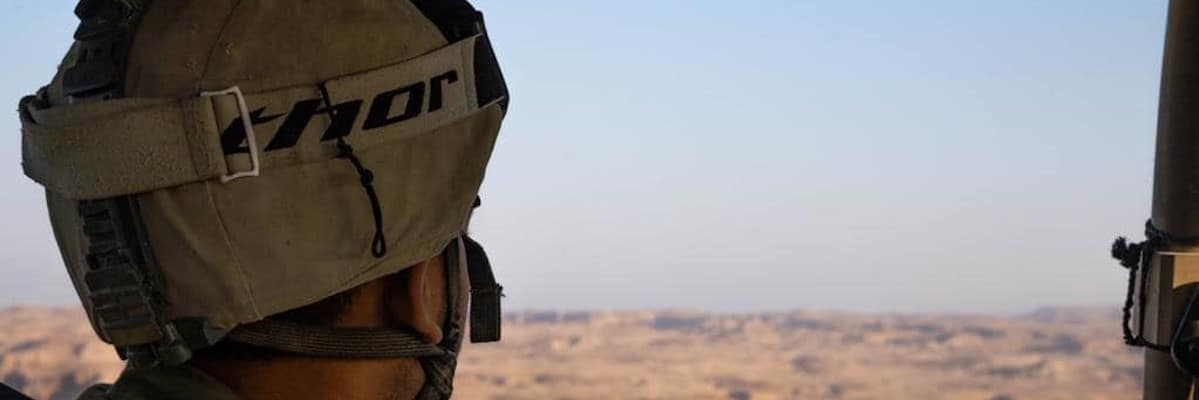The dynamics and conflicts that have affected the Palestinian region for a century or more have many local peculiarities. Through various historical vicissitudes, two peoples have come to fiercely confront each other over 30,000 square kilometers of land. On the one hand were the Jews, who saw Palestine as the ancient homeland, the biblical "promised land," which many had abandoned but which remained garrisoned by a number of them (the haYishuv haYashan, "old settlement"). On the other hand, the Arab or Arabized inhabitants, who precisely from their long clash with the Jews have matured a particular identity, adopting for themselves the name "Palestinians." Many of the hatreds and blood that have been flowing in those lands for generations stem from this ethno-national clash for a common homeland, which appears too small to contain two peoples so numerous and so different.
This view - not wrong in itself - long nourished Europeans' belief that what was happening between Israel and the Palestinians did not concern them - at least, not closely. Military attacks, terrorist bombings, were viewed with detachment: something that concerned "them" (the Israelis, the Jews), even if they happened at home. Bombs usually hit synagogues (Paris 1980, Antwerp and Vienna 1981, Brussels and Rome 1982, Copenhagen 1985, Cyprus 1988) or Israeli embassies (Bonn and The Hague 1969, London 1994). Air hijackings were carried out against El Al flights. At the Munich Olympics in 1972, Black September terrorists targeted Israeli athletes.
Yet there had been no shortage of warnings that Europe was not just a neutral bystander, a terrain of others' confrontations. Think of the attack on the Café de Paris in Rome's Via Veneto, which indiscriminately targeted its tourist clientele; or the hijacking of Lufthansa Flight 181, by which the Palestinians wanted to free their RAF associates, German terrorists of communist faith; or when, in 1973 and 1985, Palestinian terrorists twice stormed Fiumicino airport. The Italian governments of the time were the most staunch proponents of the thesis that, despite the frequent bloodshed, it was enough to keep out of Israeli-Palestinian quarrels to stay safe. This was pursued even at the cost of severe humiliation: early liberation of captured terrorists, failure to press for their extradition when they took refuge abroad, facilitation of the escape of such figures as Abu Abbas.
The false quietness in which Europe was lulled ended a few years ago when it finally realized (except for the blind people who persist in denying the obvious) that suicide bombings were not reserved for Israel alone. Nothing had to do with occupations, colonization or other wrongdoings to Palestinians the 130 killed in the multiple attacks in Paris in 2015. Nor the 32 killed in Brussels in 2016. Or the 86 poor people crushed by a truck while enjoying a stroll along the Nice waterfront. Just to mention the most egregious attacks, as the wave of assaults has been plentiful and has not yet stopped. The attackers are Muslims of various origins, often born in Europe, and Palestinian ones are few (but they are there: like Osama Krayem). However, the methods (suicide attacks), the targets (civilians, without distinction or mercy for women and children), and the motives (Islamist hatred) are the same as those fielded by Palestinian terrorists - at least since the more "nationalist" component has declined and the religious one, of which Hamas and Islamic Jihad are the embodiments, has emerged.
Hamas is the Palestinian branch of the Muslim Brotherhood. Its flag is not national, it is religious: the green banner with the shahada, the Islamic act of faith, inscribed on it. Its goal is the establishment of an Islamic state (this is the end point shared by all Islamists, from ISIS to the Ikhwan, from Islamic Jihad to al-Qaeda, who differ only in their choice of strategy and means to get there). Israel is just an obstacle between them and the realization of this goal. To believe that Europe, the West, even Italy are not themselves obstacles is a sign of naiveté.
Assume as well that the vision of those in favor of a new Caliphate is not expansionist. In other words, that having swept Israel out of Dar al-Islam, they are willing not to frame all the rest of the world as Dar al-Harb, war zone, land of conquest. Even if this is true, one must consider the new reality on the ground in 2023. It is no longer 1950: the great migratory flows of recent decades have changed the face of Europe. European nations, at least those in the West of the continent, are part of the Islamic world. The Islamic religion is not a majority there, but there are now conspicuous Muslim minorities living in our countries. Demographic trends and the crisis of the Christian faith open the door to scenarios in which, already in the medium term, Islam becomes the majority religion - relative majority, not absolute, but still a majority. In France, for example, Christians (those who identify as such) still have a four-to-one margin over Muslims, but if we looked only at practitioners we would already be close to parity.
It is not necessary for Muslims to become 50%+1 in a country, or even for them to become the relative majority religion, for Islamists to consider that land as part of Islam, of the area of the world to be brought under Quranic law. Nor can they be accused of irrationality in this: why should they be reluctant in the face of large states undergoing de-Christianization and in which the number of Muslims is growing rapidly?
Only fools could think that allowing mass immigration, the numerically largest in recorded history, would be painless and would not change Europe. Importing millions of Muslims also meant bringing their practices, ideologies, and idiosyncrasies to Europe. Bolstered by their numbers, European Muslims may seek to drag Europe into their conflicts - or, to bring the conflict directly against Europe.
Conceiving the war between Israel and Hamas as a mere local episode, which does not affect and call us into question, is anachronistic. History has already taught that what happens in Israel can later be repeated by us. It just needs someone to decide to focus on different priorities. It is no longer even a matter of "distant enemy" and "near enemy," Islamists' classic dilemma of who to fight first (whether their governments or Western ones). For many Islamists, now living in Italy, France, Belgium, Germany, Britain, we are already the near enemy, the closest one to fight.
The choice of side, at this point, for Europeans is no longer a matter of reason or emotion, guilt or pity. It is, more bluntly, a matter of survival instinct.
Founder and President of Centro Studi Machiavelli. A graduate in History (University of Milan) and Ph.D. in Political Studies (Sapienza University), he teaches “History and Doctrine of Jihadism” at Marconi University and “Geopolitics of the Middle East” at Cusano University, where he has also taught on Islamic extremism in the past.
From 2018 to 2019, he served as Special Advisor on Immigration and Terrorism to Undersecretary for Foreign Affairs Guglielmo Picchi; he later served as head of the technical secretariat of the President of the Parliamentary Delegation to the Central European Initiative (CEI).
Author of several books, including Immigration: the reasons of populists, which has also been translated into Hungarian.









Scrivi un commento